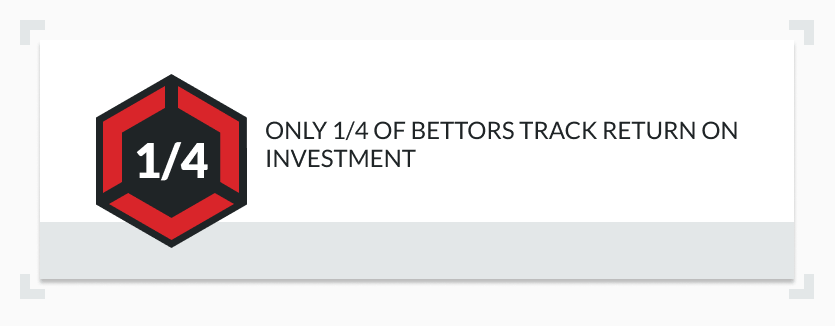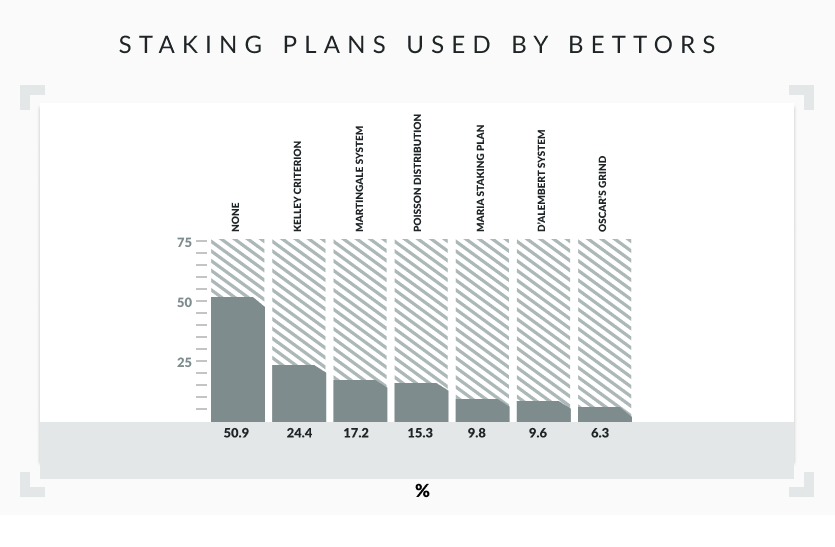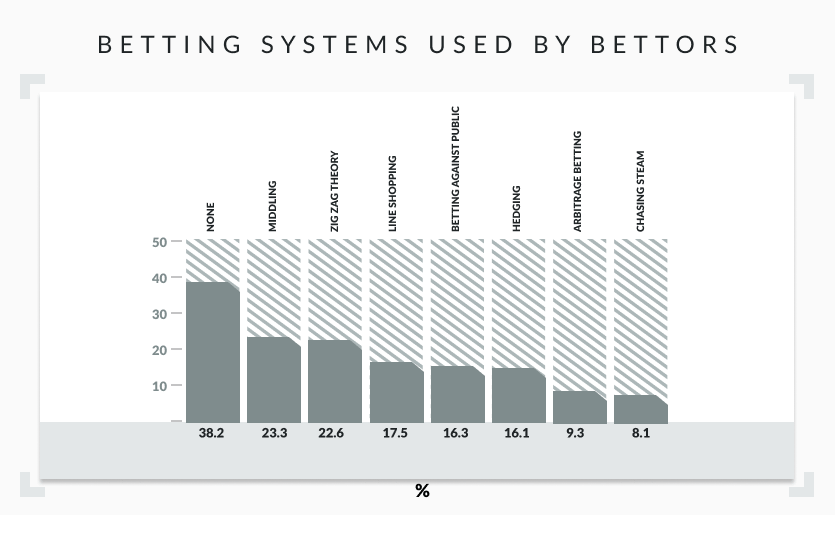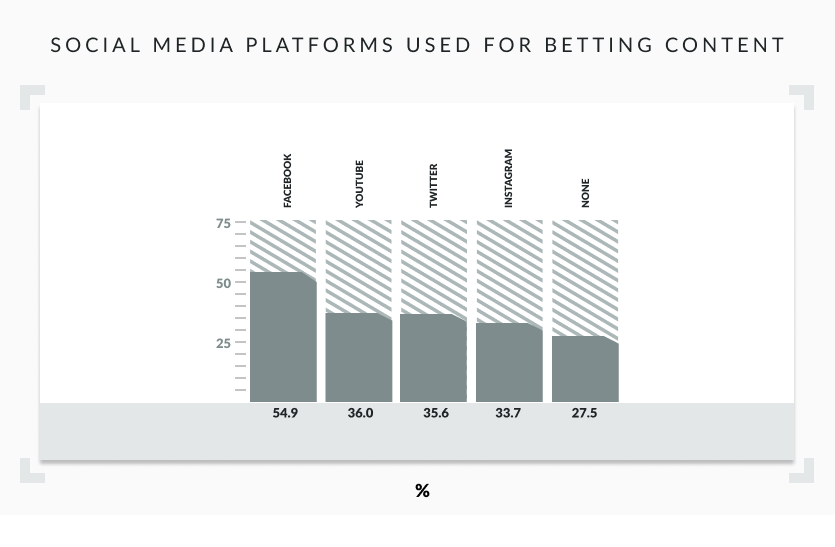Are Most Sports Bettors Prepped for Success?

Betting on sports is a time-consuming pursuit, at least for those determined to stay in the green. There’s no shortage of resources and talking heads offering their take on the week’s lines, although we acknowledge that some are more helpful than others. But are most sports bettors taking advantage of the troves of knowledge and strategy available to them?
Sports Betting Dime commissioned a comprehensive survey of American sports bettors in fall 2019 to gain insights regarding behavior and motivations related to betting on sports. As part of this study, we evaluated the way bettors were researching and handicapping their wagers.
What follows is an exposé of all that American sports bettors are and aren’t doing to prepare their wagers for success.
There’s Room for Improvement
Most bettors spend less than 30 minutes researching their wagers, which is a relatively small amount of time. A huge number of factors need to be weighed for one to properly assess the most probable outcome of a sporting event.
- 1% spend less than 15 minutes researching and handicapping the events they bet on, while a further 36.9% spend only between 15 and 30 minutes
- Only 15.3% spend over an hour on handicapping efforts
While online tools like SBD Sharp can help bettors quickly evaluate the general value of a particular team, these numbers suggest that most sports bettors aren’t losing much sleep over the outcome of their wagers.
Unsurprisingly, those who wager more money each month also spend significantly more time preparing their wagers. The data suggest a statistically significant relationship between amount wagered and time spent handicapping each event:
- Over half (52.9%) of those wagering over $5,000 per month spend more than an hour researching every event they wager on
- Two in three (66%) of those wagering between $51 – $100 per month spend between 15 minutes to an hour researching every event they wager on
- Nearly six in 10 (59.1%) of those wagering less than $50 per month spend less than 15 minutes researching every event they wager on
Issues Tracking Profitability
Bettors are largely keeping track of their efforts, but most of them are tracking the wrong metrics.

Three of four (75.2%) track their wagers in some fashion, and tallying win-loss records is the most popular tracking method. Unfortunately for the 44.2% of bettors relying on this metric, it provides no meaningful indication of profitability or return on investment.
These individuals should follow the lead of the 33.1% of bettors who track betting units won vs lost, or the quarter (24.4%) who track return on investment directly.
Practice Makes Perfect
While we would argue that most sports bettors should be spending a bit more time researching and handicapping their wagers, one of the more surprising survey results suggests bettors are very keen to practice their skills without wagering real money.
Free play betting sites mock the appearance and function of actual pay-to-play online sportsbooks, allowing bettors to practice new strategies and hone their handicapping skills without risking real cash. Many online sportsbooks also include a ‘free play’ function that allows users to bet on real lines with play money.
The data suggests people are taking advantage:
- 6% of those who bet online use the ‘free play’ function at their online sportsbook
- One in five (20.5%) use the ‘free play’ function exclusively, never wagering actual money
- Only 4.6% of online bettors reported using an online betting site that does not offer free play
Of course, free play sites only help you improve if you’re experimenting with new wager types or trying new sports betting strategies. So, which betting systems and strategies are people relying on?
Systems & Strategies
The Sports Betting Dime survey suggests that roughly half of sports bettors rely on betting systems and strategies when determining what to bet on and how much to bet. For context, a betting system or ‘staking plan’ informs how much bettors should wager in specific scenarios while a betting strategy informs which bets are worth putting money on.
Bankroll Management Systems & Staking Plans
We asked bettors about their familiarity with each of the staking plans/betting systems outlined in our sports betting strategy section. Slightly less than half (49.1%) had used one of the staking plans outlined at Sports Betting Dime, while roughly six in 10 (61.8%) had used one of the betting strategies.


These systems and strategies aren’t perfect for everyone, and they don’t apply to every sport or scenario. That said, they do provide value for disciplined bettors looking for a dedicated strategic approach, especially when paired with data and information from other resources.
Team Data, Betting Trends, & Other Metrics
The strong majority of bettors use data and statistics to inform their betting. Considering that nearly seven in 10 (69%) report having a strong or very strong understanding of probability and statistics, it’s no surprise most bettors take a passing glance at the numbers while handicapping a matchup.
From tracking line movement to following futures trackers and using team betting trends, there are plenty of resources right here at SBD for those looking to make more informed wagers. Here are the most popular among existing bettors.
Most Popular Handicapping Resources
Nearly nine in 10 bettors rely on one of these resources when preparing their wagers, with only 10.9% reporting that they use none.
Clearly, data matters to the sports betting crowd. Much of it is available from free online sources, but some of the more detailed data set and computer models are protected by paywalls or available only by subscription.
Our survey took a close look at free vs paid services used by bettors to determine bettors’ general willingness to shell out for valuable handicapping data.
Free Sports Betting Information – Using Social Media
Most bettors rely at least partially on social media accounts for relevant betting data. Nearly three in four (72.5%) follow social media accounts specifically for sports betting-related content, with Facebook and YouTube leading the charge.

Not in on the social media action yet? Check out the top Instagram sports betting accounts and best Twitter accounts for bettors. If nothing else, they offer plenty of entertainment value.
Paid Picks, Strategies, and Handicapping Services
Spend enough time scrolling through these social media accounts or certain sports betting media sites, and you’ll encounter paid services offering guaranteed picks and surefire betting strategies.
Our experience suggests many sports betting personalities and paid services are blowing smoke rather than offering valuable insights, but others undoubtedly offer information worth paying for. With the wide variation in quality among paid services, it’s no surprise bettors are split on their willingness to pay for them.
- Four in 10 (39.2%) do not rely on media personalities or websites for picks, strategies, or handicapping services
- Nearly four in 10 (37.6%) have paid for the use of these services
- About two in 10 (23.2%) have used these services but not paid for them
If you choose to pay for information to assist in the preparation of your wagers, we highly recommend being selective with your purchase. Look for detailed data sets or computer models backed by respectable companies rather than one-off picks from flashy social media accounts.
Simply staying on top of the latest sports betting news will provide a great deal of inside info and predictions, and it doesn’t cost a dime.
Bettors Trust Friends, Family, and Themselves
We all love our family and friends. So much so, in fact, that a strong majority of bettors value the opinion of their inner circle more than that of both professional bettors/handicappers and the sports media.
Whose Opinion Do Bettors Value Most?
For many, betting on sports is both a way to make money and something to bond over with loved ones or make new social connections. In this sense, it’s not surprising that bettors are more inclined to trust those they know when it comes to betting tips and picks.
Our goal at Sports Betting Dime is to attain the same level of trust with sports bettors, providing actionable insights and a huge range of instructional content to help you bet smarter and win more often.
If you haven’t already done so, check out our comprehensive sports betting guides section to get started.
About the Sports Betting Dime Survey
Sports Betting Dime partnered with a leading enterprise market research firm to survey the behaviors and opinions of active American sports bettors. SportsBettingDime.com surveyed 570 individuals aged over 18 from all census-designated regions of the United States. Surveys were distributed and collected electronically between October 18 – 21, 2019. Results were collected via mobile phone, desktop, or tablet. All respondents self-identified as active sports bettors.
You can find more statistics and analysis from this study and others in our Research section.

Evergreen Manager; Sportsbook Expert
Following a sports journalism career with his work appearing in outlets like theScore, The Province, and VICE Sports, Patrick moved into the world of content marketing to bridge the gap between great writing and SEO success. He’s brought that same mindset to lead evergreen content efforts at SBD.



